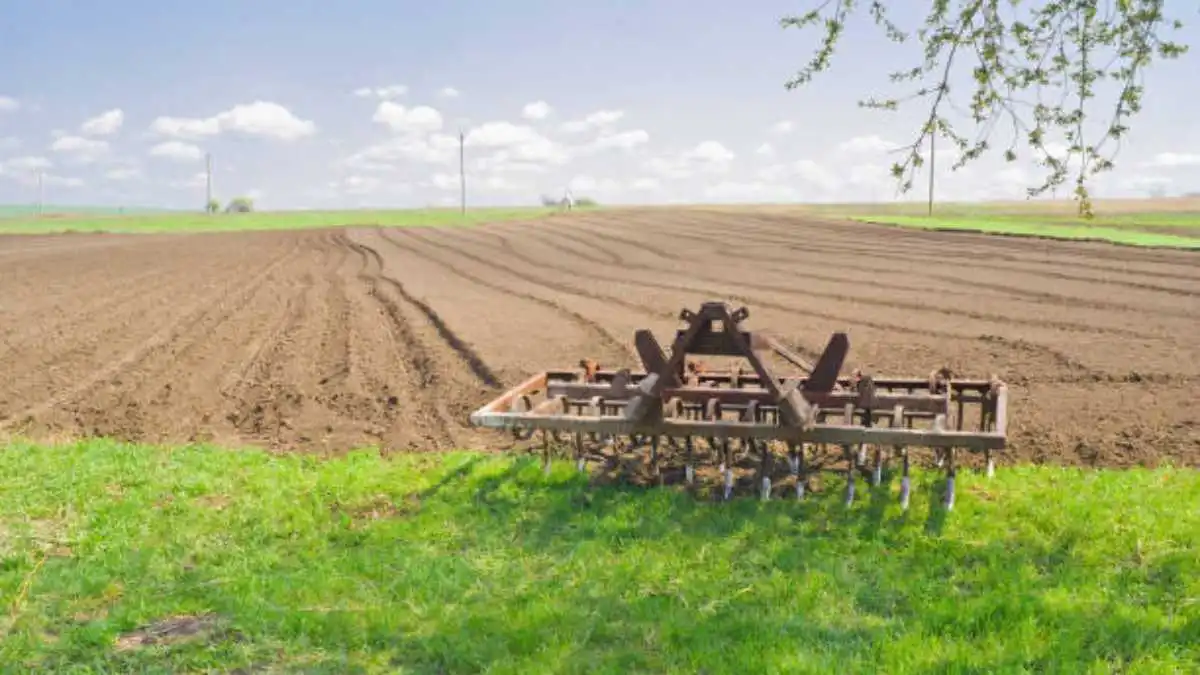GENERAL
How Proper Grading Can Prevent Erosion and Ensure Long-Term Land Stability

When it comes to land development, one of the most critical yet often overlooked aspects is grading. Proper grading involves shaping and leveling the land to control water drainage, prevent erosion, and create a stable foundation for construction. Whether you’re preparing a site for a new building, driveway, or landscaping project, effective grading is essential to ensure the longevity and safety of the land. Without it, you risk issues such as flooding, soil erosion, and foundation instability.
In this article, we’ll explore the importance of grading, how it protects against erosion, and why it’s a crucial step in land development and property maintenance.
Table of Contents
1. What is Grading and Why Is It Important?
Grading refers to the process of leveling and shaping the land to ensure proper drainage and stability. It’s a key step in construction, landscaping, and site preparation, and involves moving soil to create a surface that allows water to flow away from buildings, structures, and other important areas. Grading also creates the right foundation for roads, driveways, and landscaping features.
Key Reasons for Proper Grading:
- Prevents Water Accumulation: One of the main purposes of grading is to control the flow of water. If land isn’t properly graded, rainwater can pool around foundations, leading to flooding, water damage, or mold growth. Proper grading directs water away from the structure, reducing these risks.
- Improves Soil Stability: Grading helps to stabilize the soil, reducing the risk of erosion and landslides. This is particularly important in sloped areas, where heavy rainfall or improper water drainage can cause soil to wash away, weakening the land’s stability.
- Prepares for Construction: Before any construction project begins, grading ensures that the ground is level and prepared to support the weight of buildings, driveways, and other structures. Without proper grading, uneven surfaces can lead to foundation issues down the line.
By shaping the land to control water flow and create a stable foundation, grading ensures that your property remains functional and safe.
2. How Grading Helps Prevent Erosion
One of the most significant threats to land stability is erosion, which occurs when wind, water, or other natural forces wear away the topsoil. Over time, erosion can lead to serious problems such as landslides, property damage, and soil degradation. Proper grading is one of the most effective ways to prevent erosion, especially on sloped land.
How Grading Prevents Erosion:
- Directing Water Flow: Water is one of the leading causes of erosion, as heavy rainfall can wash away soil and create gullies or ditches. Grading directs water flow away from vulnerable areas, ensuring that rainwater is dispersed evenly across the property rather than pooling in one location.
- Stabilizing Slopes: On sloped properties, gravity and water flow can lead to significant erosion if the land isn’t properly graded. By shaping the slope to allow for gradual water drainage, grading helps stabilize the soil and prevent it from washing away during storms.
- Supporting Vegetation Growth: Vegetation plays a crucial role in preventing erosion by holding soil in place with its root systems. Proper grading can create the right conditions for planting grass, shrubs, or trees on sloped areas, which further reduces the risk of soil erosion.
Without proper grading, erosion can quickly damage the landscape and lead to costly repairs. By ensuring that water is channeled away from vulnerable areas, grading helps protect the integrity of the land.
3. The Role of Grading in Water Management
Water management is a critical consideration in both construction and landscaping projects. Poorly managed water can cause a wide range of problems, from foundation damage to soggy lawns. Proper grading helps to manage water flow across your property, reducing the risk of flooding and ensuring that water drains away from buildings and other structures.
How Grading Improves Water Management:
- Preventing Foundation Damage: When water pools around a building’s foundation, it can seep into the structure, leading to cracks, mold growth, and other damage. Grading creates a slope that directs water away from the foundation, protecting it from moisture-related issues.
- Reducing Flooding Risks: In areas prone to heavy rainfall or seasonal flooding, grading is essential for diverting excess water away from homes and low-lying areas. This helps prevent floods and waterlogging, which can damage lawns, landscaping, and property foundations.
- Improving Drainage for Landscaping: Poor drainage can result in waterlogged soil, which suffocates plant roots and creates an environment prone to disease. Grading helps improve drainage for gardens and lawns, ensuring that water flows away efficiently and supports healthy plant growth.
By managing water effectively, grading protects your property from the damaging effects of excess moisture, keeping your land dry, stable, and secure.
4. Common Grading Techniques and Solutions
There are several techniques used in grading, depending on the type of project and the specific challenges of the landscape. Whether you’re dealing with a steep slope, flat land, or an area prone to flooding, the right grading solution can make all the difference.
Common Grading Techniques Include:
- Sloping Away from Structures: One of the most important rules of grading is that the ground should slope away from buildings and structures. A slope of about 5% (or six inches of drop for every 10 feet of horizontal distance) is recommended to ensure that water flows away from the foundation and doesn’t pool around the building.
- Cut and Fill: This technique involves cutting away higher areas of land and using the removed soil to fill lower areas. It’s commonly used on sloped properties to create a level surface for construction or landscaping. The goal is to balance the cut and fill areas so that the property remains stable.
- Terracing: For properties with steep slopes, terracing can help prevent erosion and manage water flow. Terracing involves creating flat areas, or steps, along the slope, which slows down water runoff and reduces the risk of erosion.
- French Drains and Swales: In areas with heavy rainfall or poor drainage, installing features such as French drains or swales can help direct water away from vulnerable areas. These drainage solutions work in tandem with grading to control the flow of water and prevent flooding or erosion.
By using the right grading techniques, you can address the unique challenges of your property and ensure that it remains stable and protected from erosion and water damage.
5. How Grading Supports Long-Term Land Stability
Proper grading not only provides immediate benefits such as improved drainage and reduced erosion but also contributes to the long-term stability of your land. When done correctly, grading helps maintain the structural integrity of the property for years to come, reducing the need for costly repairs and minimizing the risk of land degradation.
Long-Term Benefits of Grading:
- Prevents Soil Degradation: Without proper grading, soil erosion can gradually strip the land of its nutrient-rich topsoil, leading to poor soil health and making it difficult for plants to thrive. Grading helps preserve the quality of the soil by preventing erosion and allowing vegetation to grow.
- Reduces the Risk of Landslides: On steep properties, improper grading can lead to landslides or slope failure, which can cause significant damage to structures and landscaping. By stabilizing the slope and directing water flow, grading reduces the risk of landslides and keeps the property secure.
- Ensures Sustainable Development: Grading is an essential part of sustainable land development, as it helps create a solid foundation for construction while minimizing the environmental impact. By managing water flow and preventing erosion, grading supports the long-term stability of both the built environment and the natural landscape.
With proper grading, property owners can rest assured that their land will remain stable and functional for years, even in the face of environmental challenges.
6. Professional Grading Services for a Strong Foundation
While some minor grading projects can be tackled by property owners, large-scale or complex grading jobs require professional expertise. Hiring a professional team to handle grading ensures that the work is done correctly and complies with local regulations.
Benefits of Hiring Professional Grading Services:
- Experience and Expertise: Professional grading contractors have the knowledge and experience to assess the unique needs of your property and choose the most effective grading techniques. They can identify potential issues with drainage, soil stability, or erosion before they become major problems.
- Access to the Right Equipment: Grading often requires heavy machinery, such as excavators and bulldozers, to move large amounts of soil and shape the land properly. Professional grading services have the necessary equipment to complete the job efficiently and accurately.
- Compliance with Regulations: Local regulations may govern how land can be graded, especially when it comes to drainage and environmental impact. Professional graders ensure that the work complies with all necessary permits and guidelines, protecting property owners from potential legal issues.
By investing in professional grading services from a reputable provider like Painter Land Development, property owners can ensure that their land is properly shaped, stable, and ready for construction or landscaping.
Conclusion
Proper grading is an essential aspect of land development, preventing erosion, improving water management, and ensuring long-term land stability. Whether you’re preparing a site for construction or maintaining an existing property, grading provides the foundation for a safe, functional, and aesthetically pleasing landscape.
For property owners looking to safeguard their land, professional services like those offered by Painter Land Development provide the expertise needed to execute grading projects with precision and care. By prioritizing proper grading, you can protect your investment, preserve the natural environment, and enjoy a stable property for years to come.
-

 GENERAL6 months ago
GENERAL6 months agoChristofle – For Those Who Dream of Family Heirloom Silver
-

 SPORTS8 months ago
SPORTS8 months agoDiscover the World of Football with Streameast: Watch Your Favorite Leagues and Tournaments
-

 GENERAL5 months ago
GENERAL5 months agoUncovering the World of кинокрадко: The Dark Side of Film Piracy
-

 GENERAL2 months ago
GENERAL2 months agoATFBooru: Anime, Gaming, and Subculture Imageboard


























